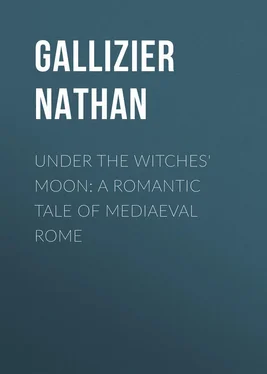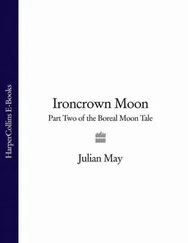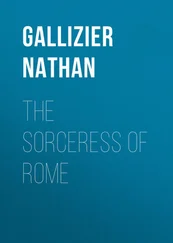Nathan Gallizier - Under the Witches' Moon - A Romantic Tale of Mediaeval Rome
Здесь есть возможность читать онлайн «Nathan Gallizier - Under the Witches' Moon - A Romantic Tale of Mediaeval Rome» — ознакомительный отрывок электронной книги совершенно бесплатно, а после прочтения отрывка купить полную версию. В некоторых случаях можно слушать аудио, скачать через торрент в формате fb2 и присутствует краткое содержание. Издательство: Иностранный паблик, Жанр: foreign_antique, foreign_prose, на английском языке. Описание произведения, (предисловие) а так же отзывы посетителей доступны на портале библиотеки ЛибКат.
- Название:Under the Witches' Moon: A Romantic Tale of Mediaeval Rome
- Автор:
- Издательство:Иностранный паблик
- Жанр:
- Год:неизвестен
- ISBN:нет данных
- Рейтинг книги:4 / 5. Голосов: 1
-
Избранное:Добавить в избранное
- Отзывы:
-
Ваша оценка:
- 80
- 1
- 2
- 3
- 4
- 5
Under the Witches' Moon: A Romantic Tale of Mediaeval Rome: краткое содержание, описание и аннотация
Предлагаем к чтению аннотацию, описание, краткое содержание или предисловие (зависит от того, что написал сам автор книги «Under the Witches' Moon: A Romantic Tale of Mediaeval Rome»). Если вы не нашли необходимую информацию о книге — напишите в комментариях, мы постараемся отыскать её.
Under the Witches' Moon: A Romantic Tale of Mediaeval Rome — читать онлайн ознакомительный отрывок
Ниже представлен текст книги, разбитый по страницам. Система сохранения места последней прочитанной страницы, позволяет с удобством читать онлайн бесплатно книгу «Under the Witches' Moon: A Romantic Tale of Mediaeval Rome», без необходимости каждый раз заново искать на чём Вы остановились. Поставьте закладку, и сможете в любой момент перейти на страницу, на которой закончили чтение.
Интервал:
Закладка:
The Piazza in front of the Lateran was deserted. Not a human being was to be seen. Tristan pursued his way through waste spaces that offered no clue. He rushed through narrow and deserted streets, abandoned of the living. He felt like shouting at the top of his voice: "Romans awake! They have abducted the Pontiff." But, stranger as he was, and dreading lest he might share John's fate or worse, he withstood the impulse and at last found himself upon the Bridge of San Angelo before the fortress tomb of the former master of the world, dreaming in the surrounding desolation. Before the massive bronze gate cowered a man-at-arms, drowsing over his pike.
Without a moment's hesitation, Tristan shook the drowsy guardian of the Angel's Castle into blaspheming alertness.
"They have abducted the Pontiff!" he shouted, without releasing his clutch on the gaping Burgundian. "Sound the alarums! Even now it may be too late!"
The man in the brown leather jerkin and steel casque stared open-mouthed at the speaker.
"The Lord Alberic is within – " he stammered at last, with an effort to shake off the drowsiness that held his senses captive.
"Then rouse him in the devil's name," shouted Tristan.
The last words had their effect upon the stolid Northman. After the elapse of some precious moments Alberic himself emerged from the Emperor's Tomb and Tristan repeated his account of the outrage, little guessing the rank of him with whom he was standing face to face.
But now they were confronted with a dilemma which it seemed would put all Tristan's efforts to naught.
Who were the leaders of the party that had abducted the Pontiff? For thereon hinged their success of intercepting the outlaws.
Tristan's description of the leader did not seem to make any marked impression on the Senator of Rome.
He questioned Tristan with regard to their coat-of-arms or other heraldic emblems. But the author of the outrage had shown sufficient foresight to avoid a hazardous display. There seemed but one alternative; to scour the city of Rome in the uncertain hope of intercepting the outlaws, if they were still within the walls.
Tristan attached himself to the senatorial party, joining in the pursuit. At first their task seemed hopeless indeed. Those they met and questioned had seen no armed band, or, if they had, denied all knowledge thereof. The frowning masonry of the Cenci, Savelli, Frangipani, and Odescalchi, which they passed in turn, returned but an inscrutable reply to their questioning glances.
For a time they continued their fruitless quest. But as if an outrage so horrible had ignited the very air about them, they soon found people stirring, shutters opening and shadowy figures issuing from dark doorways, while folk were running and shouting to one another:
"The Pontiff has been abducted!"
Between cries of rage and shouts of command and indecision on the part of the leader, who knew not in which direction to pursue, an hour had elapsed, when they suddenly heard the clatter of hoofs. A company of horsemen came galloping down the street. Alberic's suspicions that the ruffians would prefer carrying their victim by devious byways to one or the other of their Roman lairs, rather than attempt to leave the city in the teeth of the Senator's guard, seemed realized. Oaths and sharp orders broke the silence of the night.
It was amongst a gigantic pile of ruins, apart from all habitations of the living, that they came to a halt. To a gaunt brick-built tower they drew close, knocking against the iron-studded door, but ere those within could open, they were surrounded, outnumbered ten to one.
Tristan was the first to bound in amongst them.
His eyes quivered upon the steel-clad form of the leader of the band.
At the next moment a blow from Tristan's fist struck him down and, ere he could recover himself, he had been bound, hand and foot, and turned over to the Senator's guards.
His followers, despairing of success, made a sudden dash through the ranks of the people who had been attracted by the melee, riding down a number, injuring and maiming many.
The Senator of Rome ranged his men, now re-inforced by the Prefect's guard, round the drooping form of John, while a howling and shouting mob, ready to wreak vengeance on the first object it encountered in its path, followed in their wake as they made their way towards the Lateran.
An hour later, in a high vaulted, dimly lighted chamber of the Archangel's Castle, Tristan, the pilgrim, and Alberic, the Senator of Rome, faced each other for the second time.
In the course of the pursuit of the ruffians in which he participated, Tristan had been casually informed of the rank of him who led the Senatorial guard in person and when, their object accomplished, he started to detach himself from the men-at-arms, Alberic had foiled his intention by commanding him to accompany him to the fortress-tomb where he himself held forth.
Seated opposite each other, each seemed to scan the other's countenance before a word was spoken between them.
Alberic's regard of the man who seemed utterly unconscious of the importance of the service he had rendered the Senator betokened approval, and his eyes dwelt for some moments on the frank and open countenance of this stranger, perchance contrasting it inwardly with the complex nature of those about his person in whom he could trust but so long as he could tempt them with earthly dross, and who would turn against him should a higher bidder for their favor appear.
Tristan's first impression of the son of Marozia was that of one born to command. Dark piercing eyes were set in a face, stern, haughty, yet strangely beautiful. Alberic's tall, slender figure, dressed in black velvet, relieved by slashes of red satin, added to the impressiveness of his personality. Upon closer scrutiny Tristan could discover a marked resemblance between the man before him and his half-brother, the ill-fated Pontiff, whom, for political reasons, or considerations of his personal safety, he kept prisoner in the pontifical palace.
But there was yet another present, who apparently took little heed of the stranger, engaged as he seemed in the perusal of a parchment, spread out upon a table before him, – Basil, the Grand Chamberlain.
A whispered conversation had taken place between the Senator and his confidential adviser, for this was Basil's true station in the senatorial household. In the evil days of Marozia's regime he had occupied the same favored position at the Roman court, and, when Alberic's revolt had swept the regime of Ugo of Tuscany and Marozia from Roman soil, the son had attached to himself the man who had shown a marked sagacity and ability in the days that had come to a close.
Basil's complex countenance proved somewhat more of an enigma to the silent on-looker than did the Senator's stern, though frank face.
He was garbed in black, a color to which he seemed partial. A flat cap of black velvet with a feather curled round the brim, above a doublet of black velvet, close fitting, the sleeves slashed, to show the crimson tunic underneath. The trunk hose round the muscular legs were of black silk and gold thread, woven together and lined with sarsenet. His feet were encased in black buskins with silver buckles, and puffed silk inserted in the slashings of the leather.
The whole suggestion of the dark, sable figure was odd. It was exotic, and the absence of a beard greatly intensified the impression. The face, as Tristan saw it by the light of the taper, was expressionless – a physical mask.
At last Alberic broke the silence, turning his eyes full upon the man who met his gaze without flinching.
"You have – at your own risk – saved Rome and Holy Church from a calamity the whole extent of which we may not even surmise, had the Pontiff been carried away by the lawless band of Tebaldo Savello. We owe you thanks – and we shall not shirk our duty. You are a stranger. Who are you and why are you here?"
Читать дальшеИнтервал:
Закладка:
Похожие книги на «Under the Witches' Moon: A Romantic Tale of Mediaeval Rome»
Представляем Вашему вниманию похожие книги на «Under the Witches' Moon: A Romantic Tale of Mediaeval Rome» списком для выбора. Мы отобрали схожую по названию и смыслу литературу в надежде предоставить читателям больше вариантов отыскать новые, интересные, ещё непрочитанные произведения.
Обсуждение, отзывы о книге «Under the Witches' Moon: A Romantic Tale of Mediaeval Rome» и просто собственные мнения читателей. Оставьте ваши комментарии, напишите, что Вы думаете о произведении, его смысле или главных героях. Укажите что конкретно понравилось, а что нет, и почему Вы так считаете.












